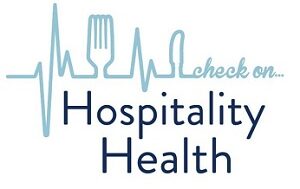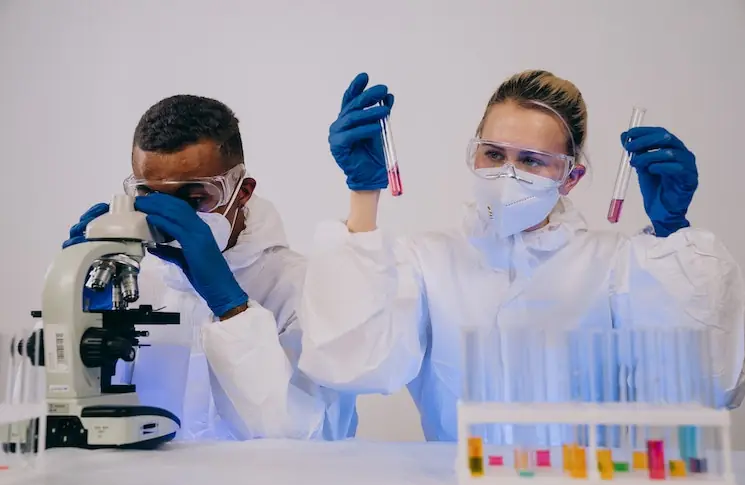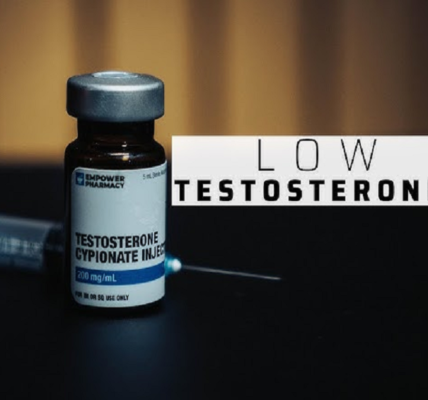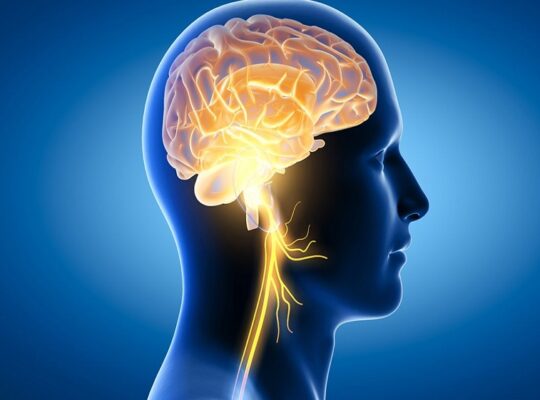AI has the potential to revolutionize medical diagnostics in exciting new ways. Rather than relying solely on a doctor’s analysis of your symptoms and medical tests, AI systems can detect subtle patterns that humans might miss.
Detecting Disease
AI excels at analyzing huge datasets to find connections humans can’t see. By combing through thousands of MRI scans, AI systems learn to detect signs of Alzheimer’s or cancer that doctors might overlook. An AI tool developed by Google scans eye exams and spots signs of diabetes or heart disease. These early detections allow for earlier treatment and better outcomes.
Personalized Care
AI also enables personalized diagnostics tailored to your unique biology. AI tools can analyze your DNA, health records, lifestyle, and environment to determine health risks unique to you. AI startup Anthropic analyzes blood samples to create personalized diagnostic tests for conditions like infertility or thyroid disease. The possibilities for tailored care are endless.
While AI will complement human physicians, it won’t replace them. Doctors provide the human touch, judgment, and bedside manner that AI lacks. But by enhancing diagnostics and enabling personalized care, AI can help doctors provide the best treatment for each patient. The future is bright for AI-human collaboration in medicine.
The Role of AI in Precision Medicine and Drug Discovery
Artificial intelligence is revolutionizing medicine as we know it. Precision medicine, which tailors treatments to individuals based on their genes and lifestyle, is getting a major boost from AI. By analyzing huge amounts of data, AI systems can detect patterns that lead to more accurate diagnoses and personalized treatments.
AI-Powered Diagnostics
AI is helping doctors diagnose conditions more accurately. Machine learning algorithms can detect patterns in medical images, genetic data, and patient symptoms to identify diseases like cancer, eye diseases, and skin disorders. AI diagnostics are faster, less expensive, and often more precise than humans alone.
AI for Drug Discovery
Developing new drugs is a long, costly process. AI has the potential to speed up drug discovery and cut costs. AI systems can analyze molecular interactions to identify promising drug candidates. Machine learning models can also predict how effective a drug might be based on its chemical properties. AI may shave years off the decade-long average time required to develop a new drug.
While AI will not replace doctors, it is poised to become their powerful sidekick. With AI as a partner, physicians can spend less time analyzing data and more time caring for patients. For people seeking medical help, AI means faster, more accurate diagnoses and access to the latest treatments. The role of AI in precision medicine and drug discovery is only getting started, but it’s clear this partnership between human and machine will improve health outcomes for all.
Will AI Ever Fully Replace Doctors? The Pros and Cons of Automation in Healthcare
Artificial intelligence has the potential to vastly improve healthcare, but will it ever completely replace human physicians? That seems unlikely. AI excels at handling huge amounts of data to detect patterns and make recommendations, but human doctors still have some key advantages.
On the plus side, AI can help diagnose conditions, detect diseases like cancer or eye diseases, and even recommend treatment plans. AI-based tools are getting better at analyzing medical scans, test results, and health records to spot signs of disease. They can also keep doctors up to date with the latest medical research and treatment guidelines. All of this could help doctors make better decisions and provide higher quality care.
However, AI has some significant limitations. It struggles with ambiguity and intuition in the way humans don’t. AI systems are narrow in scope and are unable to transfer knowledge between different domains the way humans can. They also lack empathy, which is so important in healthcare. Patients want doctors who can understand their experiences and reassure them. AI may get better at mimicking empathy over time but likely won’t match human compassion.
For the foreseeable future, the ideal scenario is AI and human physicians working together. AI can handle routine tasks, initial diagnostics, and monitoring, freeing up doctors to focus on more complex cases. But physicians will still oversee AI systems and meet with patients to provide a human touch. Rather than replace doctors, AI will likely make them even more valuable as partners in providing the best possible care. The future of medicine is shaping up to be a collaborative effort between human and machine.
Conclusion
So what’s the bottom line when it comes to AI in medicine? Sure, we’ve got a long way to go before our healthcare is being handled by robots, but the technology is advancing quickly. As patients like Aaron Easaw, it’s exciting to imagine a future where diagnosis and treatment is faster, more accurate, and more personalized. Just don’t go asking your doc to reboot anytime soon! While the tech still needs plenty of improvement, it’s clear that AI will become an increasingly important tool to augment human knowledge and skills. We’ll just have to learn to share the job with our new robot colleagues. But for now, we’re happy to keep the traditional doctor-patient relationship intact.










